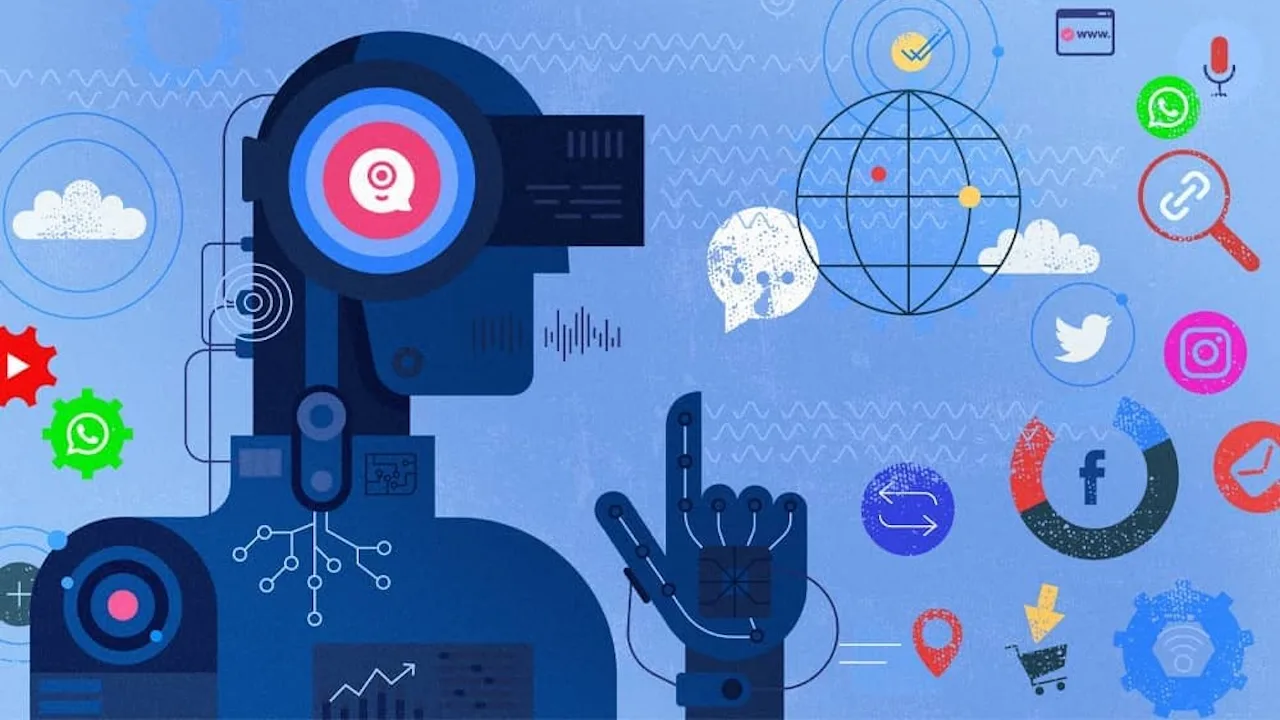Artificial intelligence (AI) has rapidly become one of the most transformative forces in modern life. From manufacturing to healthcare, AI systems are reshaping industries, automating workflows, and accelerating digital transformation. But here’s the real question: Can AI truly speed up processes — and if so, at what cost?
In this article, we’ll explore how AI impacts different sectors and whether faster always means better.
The Power of AI in Process Optimization
Integrating AI into business operations has unlocked unprecedented levels of efficiency. Thanks to machine learning and deep learning algorithms, massive datasets can now be analyzed in seconds.
Tasks that once required human supervision for days or even weeks can now be completed almost instantly — marking a new era of speed and automation.
AI in Manufacturing and Industry
In modern production lines, AI-powered robots minimize errors and accelerate assembly processes.
Smart factories now use IoT (Internet of Things) sensors and AI analytics to predict maintenance needs, reduce downtime, and maximize productivity.
This shift has made industrial automation a key driver of global competitiveness.
AI in Customer Service
Chatbots and voice assistants have revolutionized the customer experience.
They can handle thousands of requests simultaneously, offering responses in seconds — something no human team could ever match.
As a result, companies are not only cutting costs but also boosting customer satisfaction and engagement.
AI in Finance and Banking
In the financial sector, AI now handles everything from fraud detection to credit scoring in real time.
Traditional risk assessments that once took hours are now completed in milliseconds.
By leveraging predictive analytics, banks can identify suspicious activity and improve decision-making faster than ever before.
AI in Healthcare
AI is transforming healthcare by shortening diagnosis times and improving treatment accuracy.
Through medical imaging analysis and patient data modeling, AI systems assist doctors in detecting diseases earlier and more precisely.
This technology is not replacing human doctors but rather empowering them with rapid insights and predictive capabilities.
AI in Logistics and Supply Chain
AI has also revolutionized logistics by introducing predictive forecasting and route optimization.
From warehouse management to inventory control, AI-powered algorithms ensure faster delivery and reduced operational costs.
Companies can now make real-time decisions based on live supply chain data — something impossible just a few years ago.
Fast Doesn’t Always Mean Right
While AI can process data at lightning speed, speed doesn’t always guarantee accuracy.
Machine decisions are only as reliable as the data they’re trained on.
If data is outdated, biased, or incomplete, AI can make wrong decisions faster than humans ever could.
That’s why companies must balance speed with precision, ensuring data quality and ethical oversight remain top priorities.
Big Data Overload and Processing Limits
Businesses today analyze millions — even billions — of data points daily using AI.
However, as data volume grows, so does the risk of system overload.
Insufficient hardware or unoptimized algorithms can slow processing speeds, negating the benefits of automation.
Even high-performance AI systems can experience performance drops under heavy workloads, reminding us that computational limits still exist.
Human Oversight and the Boundaries of AI
Despite its autonomy, AI still requires human supervision.
While machines excel at rapid data processing, humans remain essential for contextual understanding, creativity, and ethical judgment.
Ultimately, AI should be seen as a partner — not a replacement — ensuring speed and accuracy coexist under responsible guidance.
The Future of Work with AI
As AI technology matures, we’ll see business environments that are faster, more efficient, and heavily automated.
Organizations will adopt hybrid workflows combining AI automation with human creativity.
This evolution will reshape job roles, emphasizing strategic thinking and emotional intelligence over repetitive manual tasks.
Quantum Computing and the Next Speed Revolution
The combination of quantum computing and AI promises a once-in-a-century leap in computational power.
Calculations that would take classical computers years could be solved in seconds with quantum systems.
This breakthrough could redefine research, manufacturing, and business analytics, creating a new standard for speed and performance.
The Human–AI Collaboration Model
The future of work lies in collaboration between humans and AI.
Machines will handle high-speed, data-intensive tasks, while people focus on creativity, empathy, and strategic decision-making.
This synergy ensures not only faster workflows but also more balanced and meaningful outcomes.
In this hybrid model, organizations that combine human oversight with AI precision will achieve the most sustainable success.
Conclusion
Artificial intelligence is revolutionizing modern industries by dramatically reducing process times, cutting costs, and enhancing efficiency.
From AI-driven robots on factory floors to instant-response chatbots, speed has become a defining advantage.
However, accuracy, data integrity, and human judgment remain vital.
In the coming years, AI will move from being a supportive tool to a central decision-maker, empowered by quantum computing and advanced algorithms.
The most successful companies will be those that maintain a perfect balance between human creativity and artificial intelligence.
For more social media tools, check out our Free Instagram Likes at FreeDownloadTools.

